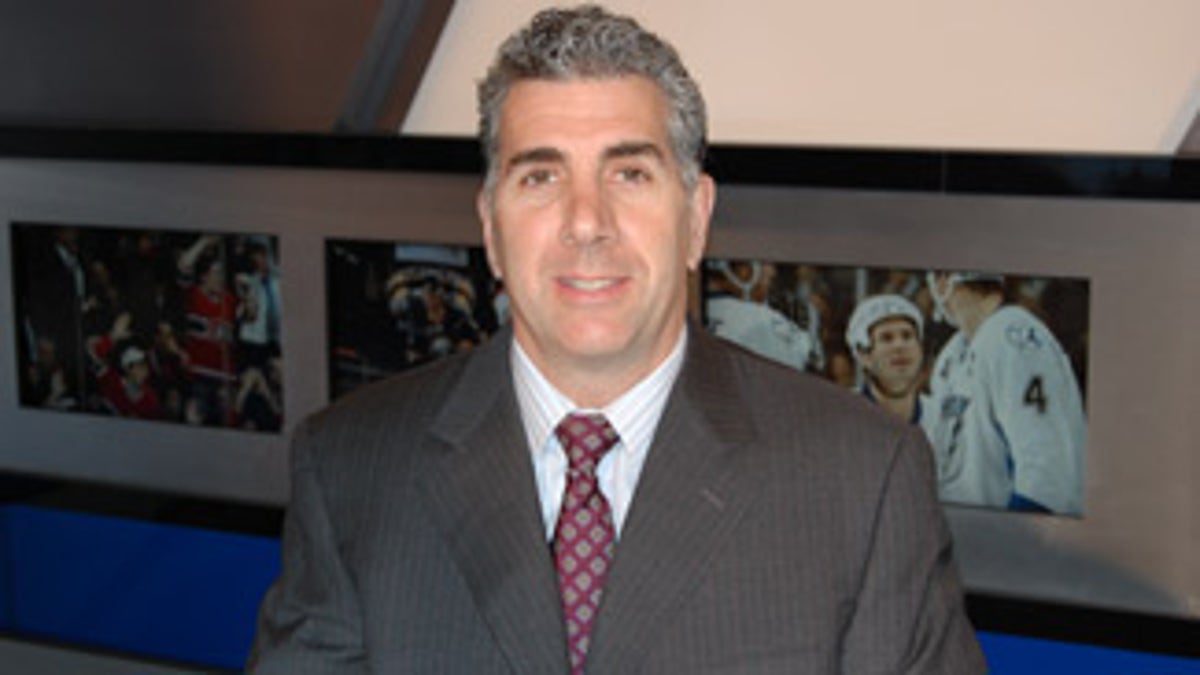
BOCA RATON, Fla. -- Craig Button nearly jumped out of his sun-drenched chair Wednesday while chatting with NHL.com.
Button, the former general manager turned NHL Network analyst, covered the proceedings here for the last three days with a unique perspective as the only member of the media who has actually sat inside the General Managers Meetings and voiced his opinion.
He wants everyone to know that nothing the GMs have talked about here has been a result of a kneejerk reaction to any one play or hit. That's just not how they operate.
"I don't think there is enough credit given to NHL Hockey Operations and the managers for looking at where the game is at," Button told NHL.com. "You get to this point and there are hot-button topics that are there, but they are talking about these things long before. They don't just show up here with an idea and say, 'Let's do it.'"
With that in mind, Button offered up his thoughts on the important elements that have come out of the meetings here at the Boca Beach Resort, including player safety, a chilly response for a blanket head-hit rule, player education and stiffer supplemental discipline:
'A safety engineer? That's a great idea'
"The managers are always thinking and looking to how the game is being played and they're looking at the safety of the players. Yeah, we have an incident and everybody wants to jump on board. We get that, but in 2005, with the new standards on interference, obstruction and trying to make sure speed and skill was in the game, managers knew there would be consequences to that. And they've been dealing with that. They are looking at the rules all the time. They know the speed and the hitting is up. Hockey Operations has all the data. They say, 'Look at this, guys, hitting is up, do we like that?' That's the first thing that needs to be really stressed -- the managers are continually looking at the impact, the unintended consequences and what we can do.
"The boards aren't going away, but they're talking about the glass and making the environment safer. A safety engineer (to check all 30 arenas)? That's a great idea. If we reduce injuries by one percent, that's an increase. We have a physical game, a contact game, a collision game, so it's not so much about eliminating the hitting; it's about eliminating the unnecessary hits and collisions that lead to injuries, like charging, boarding, plays below the goal line."
'Do we need a blanket rule for head shots?'
"Last year at this time there was a significant change in the rules with Rule 48 on blindside hits. The hit by Mike Richards on David Booth, and Matt Cooke (on) Marc Savard, were not illegal. There wasn't anything in the rulebook that said it was illegal, but it made a lot of people uncomfortable and they said we don't want this hit in our game. Thirty managers voted unanimously to take that play out of the game.
"So now we have some other things that are showing up. Now they start to ask, what does the data tell us and do we need a blanket rule for head shots? It's not that they're not going to consider it, but the key thing is what are the other things we can look at and maybe evaluating play along the boards, the charging rule, talking about distance and speed traveled. They're saying we want the speed, but do we want the speed to be used as a weapon? It's no different than setting speed limits. What they're saying is we love the speed, but we've got to monitor this a little bit better. So they're putting speed bumps in and the speed bumps are them saying we're now going to look at excessive force, look at distance and speed in terms of making a hit. Let's see now where the data goes from there."
'The education part ... as important as the penalty part'
"(NHL Senior Vice President and Director of Officiating) Terry Gregson made a great comment when he said, 'The way the rules are constructed now with turning your back and protecting the puck, a lot of players use the rules to their advantage.' So how do we change that? One of the most significant things that has come out of here that doesn't get talked about is when Gary (Bettman) talked about having an initiative to educate the players all the way down to youth. Don't put yourself in a vulnerable position. Protect yourself. We're not talking about elbows, we're talking about how do you protect yourself. Ken Holland can sit here and say here's how Chris Chelios played into his late 40s and Nicklas Lidstrom plays in his early 40s. This is how they go back for the puck. They go back for the puck more than anybody in the game, so how come he's not getting injured? It's about angles. The education part might be as important as the penalty part. It's something that is significant and can really have a long reach in terms of youth hockey and understanding."
'Make the suspensions more severe'
"Repeat offenders, they're going to be dealt with a little differently and I like that. I like the fact that the managers have told Colin Campbell and Hockey Operations to make the suspensions more severe for these hits. I love that. It just goes to show you that the managers are standing up and saying we have the best interest of the game in hand. That's great. I love it."
Follow Dan Rosen on Twitter at: @drosennhl




















